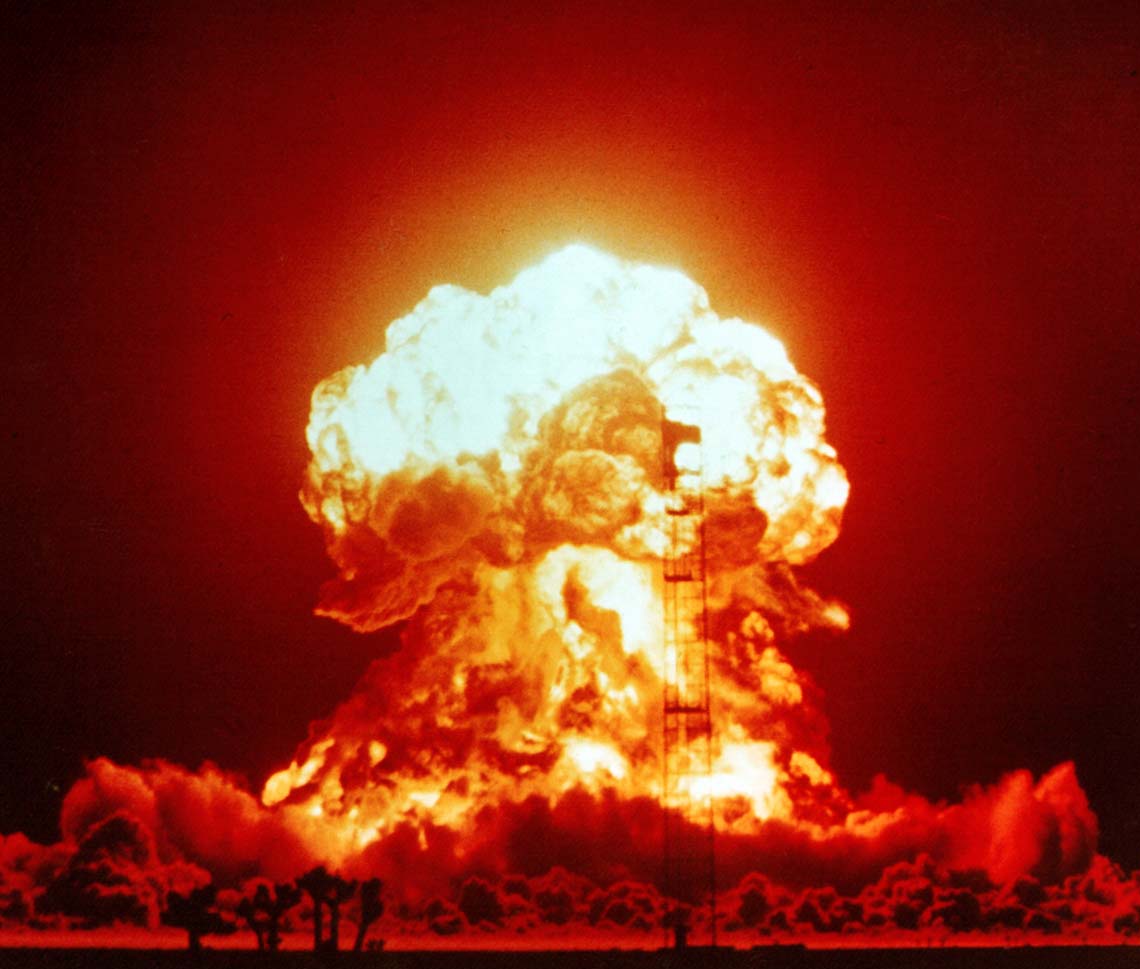I have written about the possibility of “nuclear winter” in previous blogs. It has been estimated that the detonation of as few as one hundred nuclear warheads would clog the atmosphere with smoke and soot from firestorms in burning cities, oil refineries and rural missile installations. The term nuclear winter was coined in 1983 by Richard P. Turco who ran some of the early computer models that projected the effect of such firestorms. The soot and smoke would reverse global warming and reduce the amount of sunlight reaching the surface of the Earth for years.
If only around a hundred nuclear detonations occurred, Food production would crash. Diseases would spread and millions of people would die. All countries on Earth would be severely impacted. If thousands of nuclear warheads were detonated in a major exchange between the U.S. and Russia, the results would be catastrophic. Billions of people would die. In short, it would mean the end of our civilization and the devastation of the entire ecosystem.
New work on modeling the effects of nuclear detonations suggests that even a few modern nuclear warheads could cause what is being referred to as a “nuclear autumn.” A nuclear autumn while not as severe as a nuclear winter would still be devastating. Some of the results of a nuclear autumn include a serious drop in agricultural productivity, loss of ozone in the stratosphere and the spread of dangerous radioactive fallout across the world.
An analysis of the nuclear arsenals of the U.S., the U.K, France, Russia, and China states that the U.S., Russia, and China could each trigger a nuclear autumn with the detonation of as few as five nuclear warheads. These warheads could be delivered by nuclear bombers and/or ICBMs.
The Trump administration supports expanding the U.S. nuclear arsenal. President Trump told the Reuters news service that “It would be wonderful, a dream would be that no country would have nukes, but if countries are going to have nukes, we're going to be at the top of the pack.” He also tweeted during the Presidential transition that “The United States must greatly strengthen and expand its nuclear capability until such time as the world comes to its senses regarding nukes.”
While the possibility of an all out nuclear war is increasing as the relationship between the U.S. and Russia continues to deteriorate, the possibility of a limited use of nuclear weapons is also increasing. Improved accuracy and variable yields of new generations of nuclear weapons are also increasing the odds of the use of nuclear weapons in regional conflicts as tactical weapons for use on the battlefield.
One hundred and twenty-two nations have voted for the U.N. ban on all nuclear weapons. A total ban on all nuclear weapons may be the only way of avoiding the disastrous consequences of even a few nuclear detonations in a conflict. Unfortunately, the nations with nuclear weapons did not take part in the creation of the nuclear weapons ban treaty. Without their participation, the noble goal of the treaty will remain unfulfilled and we will continue to live under the nuclear Sword of Damocles.
